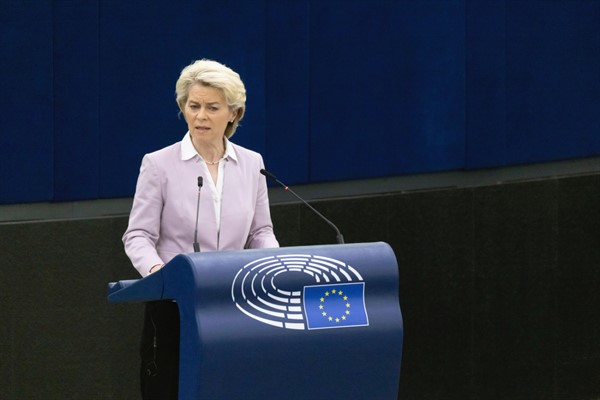Lawmakers in the European Parliament rejected three major pieces of climate legislation in a plenary vote held yesterday in Strasbourg, dealing a blow to the European Union’s efforts to meet a 2030 target to reduce carbon emissions by at least 55 percent. The proposals reforming the EU’s carbon market were killed by left-wing lawmakers not because they oppose a carbon border tax, but rather because they argue the legislation had been watered down by a number of industry-friendly amendments tacked on by conservative MEPs.
The Carbon Border Adjustment Mechanism, a key component of the EU’s mammoth “Fit for 55” climate legislation package, was proposed last year by European Commission President Ursula von der Leyen as a means of protecting European industry from unfair competition by companies with operations in countries with less stringent climate legislation than the EU. The EU also argues that the legislation is necessary to prevent “carbon leakage,” the phenomenon whereby polluting companies and industries move operations to a different part of the world with more permissive standards. A levy would also apply to all imported goods with a higher carbon footprint than those produced within the EU.
Historically, the EU has protected European companies from their polluting competitors mainly by giving free allowances in the EU’s emissions trading scheme to those industries deemed to be most at risk from carbon leakage. Under the commission’s proposal, those allowances will be phased out once the CBAM takes effect. But industry groups have been lobbying for a longer transition period for European companies currently receiving the allowances.

